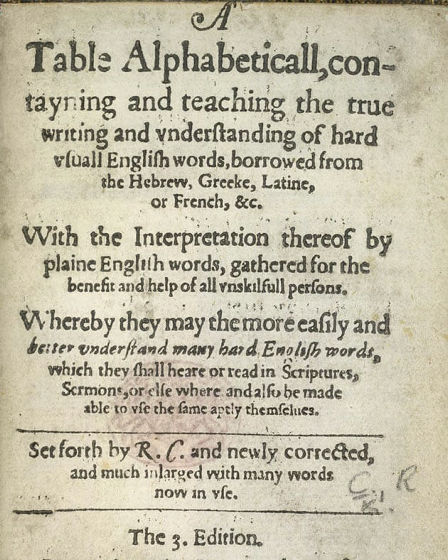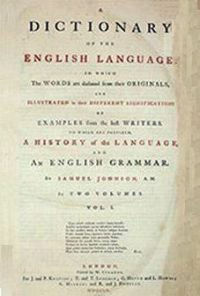How did the dictionary "Oxford English Dictionary" dictionary of the number of recorded words in the world have survived the change of the times?

Oxford English Dictionary (OED)Is a language dictionary that contains diverse English usage and over 600,000 words. Services that understand the meaning of words even free There are competing services such as Wikipedia and Google, OED has talked about how to overcome the waves of the times and take future strategies in the UK Media The Guardian .
Inside the OED: can the world's biggest dictionary survive the internet? | News | The Guardian
https://www.theguardian.com/news/2018/feb/23/oxford-english-dictionary-can-worlds-biggest-dictionary-survive-internet
OEDOnline publicationIt is new and contains 7000 words newly every year. Also, in the case of the New Oxford American Oriented Dictionary (OAD), more words and phrases are added, and in 2008 these words and phrases are also collected from Twitter tweets in these dictionaries. When the reporter asked the dictionary editor, "Do you collect all the words?", I heard that the answer "It is literally" came back.
OED's ancestor is an English dictionary published in 1755, commonly known as "Johnson's Dictionary". It is said that it contained 40,500 words and was recording 80% of the language used at the time. This dictionary started a dictionary creation plan in 1712. Editing continued until completed in 1747, and it took a huge amount of time from planning to completion, 43 years, so it is said to be "heroic folly".

ByAlex Brown
Problems were standing in English dictionary editing for a long time. That's because English is a language that had lots of languages including ancient Anglo-Saxon, Germanic, Norwegian, Latin, Greek until the 16th century. In addition, the languages of the colonies were mixed, the spelling and the pronunciation were unbalanced and it was not in a condition that allowed editing of the dictionary. For example, in English words there are "alcohol" etymology of Arabic and Latin origin, "abandonment (abandonment)" of etymology of French.
In 1604, a clergy named Robert Cordela makes the first English dictionary, "A Table Alphabeticall" which is "English-English dictionary". However, this dictionary was poor in the explanation of the phrase, and there were few included phrases. It is said that the included phrase is 500 words, 5% of the word used at the time. After that a lot of dictionaries were born, but any of the included words were thousands of words and phrases poor.
The following image is a dictionary edited by Cordelie.

In 1664 the British Royal Society questions the absence of a comprehensive dictionary in English. This was from the current "embarrassment" that there was a comprehensive dictionary in French, Italian, and Spanish, which did not exist in English. Then a plan to build an English dictionary will be raised in 1712.
This dictionary editing plan is difficult as a "post of a great and troublesome work" and failure continues until a writer Samuel Johnson is appointed by a publishing company group at the top post leading editing. The reason for its difficulty is "English is a language that evolves rapidly". Mr. Johnson said that he had the impression of "act not to say impossible as well as laugh" to the act of editing this dictionary.

OED is a descendant of Johnson 's dictionary far away. It is a large-scale project that has been published up to the third edition and has also experienced all revisions. And the current dictionary digitizes the contents and continues revision. This digitization was scheduled to be completed in 2000, but the update is continuing. Mr. Michael Profit of Oxford Publishing Division answers "48.7%" used by contemporary people for the phrase contained in this digital version.
In 1928, a dictionary replacing Johnson's dictionary that was classic for 150 years until then will be born. 2000 editorial volunteers are recruited under Mr. James Murray of Oxford University Press, "New English Dictionary" (NED: New English Dictionary) is completed. Later on, the name of this dictionary changes and it becomes the current "Oxford English Dictionary" (OED). NED was recorded in 10 volumes and the phrase about 414,800 words was recorded.

However, it took me a long time to edit this dictionary. The first book containing the phrase "A" in 1884 began to be published, but the last ten books were published in 1928. In other words, the year of the phrase collected between the letters A to Z of the alphabet has a time difference of 44 years, and the phrases recorded from "A" to "L" are old and will be corrected to 1933.
Mr. Murray and the staff were doing editing the first edition of the dictionary at the following image location.

After that, at the end of the 1960's, a dictionary editing approach using a computer called "corpus linguistics" began. It is to gather "words actually used" by computers from romance novels and books. At the linguistics conference in Corpus held in Birmingham, England in 2017, researchers were collecting and discussing terms such as "LOL" and "ROFL" which means "laugh" used by Twitter users.
Other dictionary publishers introduced Corpus linguistics, but OED was not introduced and stuck to the current method. The second edition of OED was published in March 1989, and 290 thousand words of phrases were recorded. However, I took a criticism of "mixing with old things, not new versions". For example, the word "computer" is defined as "calculator", which had been collected in 1897 as it was. In the same year 1989, the executive officer of the Oxford publishing division mentioned the introduction of corpus linguistics.
Modern OED dictionary editors have been able to search deeper phrases by digitizing. However, there are times when that method is backfired. For example, when a word or phrase is indicated by analyzing the corpus language, a task of checking the background of the phrase is carried out, but in doing so, there are cases in which it is necessary to check backward to the hand-drawn characters of the 17th century.
Work to keep the dictionary up-to-date will be expanded to a disastrous size. Adding a new word will make it possible to respond to new words, but at the same time it displays more words and phrases than ever so that mutations happen faster and the work increases exponentially became. One of the OED dictionary editors commented, "It has endlessness, I feel that it falls in the wormhole."

ByAnnie C
Mr. Mike Randell of Oxford Publishing Division is a person who participates as a personnel reinforcement in a dictionary editing project of a language unique to Australia. "Making a dictionary is as artistic as a craft.The dictionary can make a big change.While they speak a unique language, they have a word" save "and" share "Although it may not be possible to give influence in the past, I can give them the power of language," he told excitement about the project.
The digitized OED is about to become a little more complete every day. The dictionary team calls this dictionary which changes daily as "moving document". The words are added and they are never deleted. OED is online update four times a year. If the update is actually carried out by 2037 as planned, it will reach 49 years from the birth of OED until completion. This year will exceed the 43 years spent in Johnson's dictionary, and the first recorded phrase will be 49 years since its first appearance. The included phrases become old and need to be revised in full in order to adapt to the times. Creating a dictionary will continue indefinitely like this.
Related Posts:
in Note, Posted by darkhorse_log







